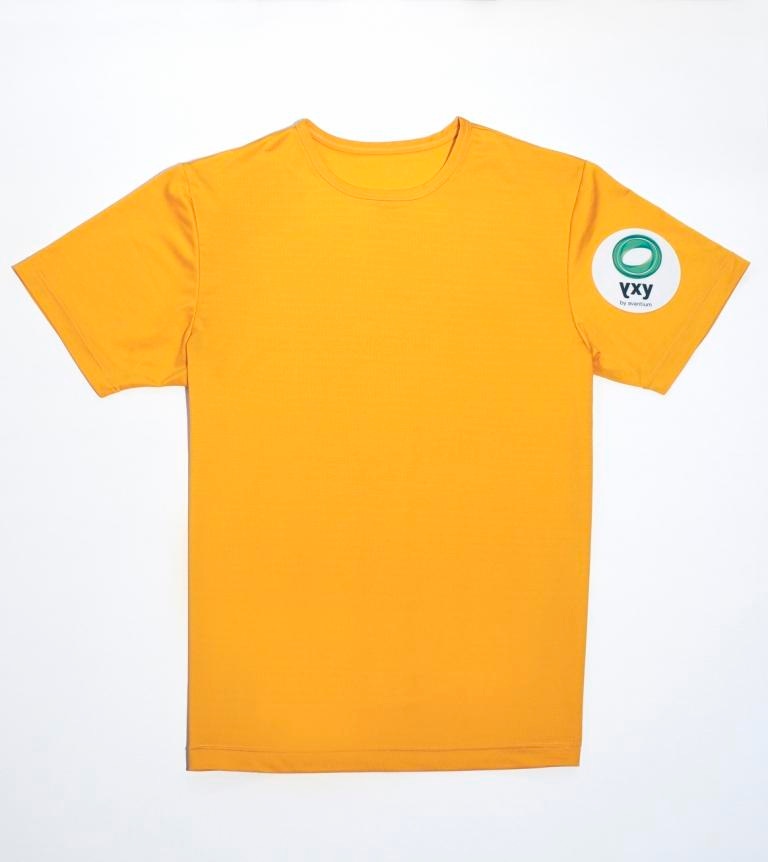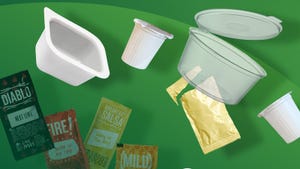Green Matter: Avantium’s got the t-shirt
Avantium, the Dutch technology company that developed and is currently commercializing the biobased polyester known as PEF (polyethylene furanoate), announced yet another breakthrough. According to the company, it has demonstrated that PEF, like PET, can also be used to make fibers, and that, moreover, PEF bottles can be recycled into PEF fibers and subsequently processed into 100% biobased T-shirts.So, why exactly would that be exciting news? Well, consider the following:
November 14, 2013

Avantium, the Dutch technology company that developed and is currently commercializing the biobased polyester known as PEF (polyethylene furanoate), announced yet another breakthrough. According to the company, it has demonstrated that PEF, like PET, can also be used to make fibers, and that, moreover, PEF bottles can be recycled into PEF fibers and subsequently processed into 100% biobased T-shirts.
So, why exactly would that be exciting news? Well, consider the following:
First, demand for textile products has been growing for years. Incredibly, annual per capita consumption has grown 53% over the past three decades, reaching 12.2 kg, in 2012, up from a mere 8 kg in the early 1980s. The fastest growth has been generated by manmade fibers: the percentage of manmade fibers among total fiber production rose from 30% in 1980, to 59% in 2012.
Annually, some 50 million tons of manmade fibers are produced worldwide. The most popular of these is by far polyester, with a market share of 81% that can be valued, according to the recently published Polyester Chain Report 2013 at $75 billion in 2012.
Polyester boasts a wide range of properties and is suitable for applications ranging from filaments, fibers and technical yarns to containers, films and moldings. The most widely used polyester is PET, with the majority of the world's PET production - over 60% - being used for synthetic fibers.
Second, the textile industry is notorious for the impact it has on the environment. In recent years, governments, NGOs and consumers have pressured the textile industry to take a more proactive approach in reducing the industry's environmental footprint, leading the industry to look for more sustainable alternatives to current practices and materials. Initiatives in this area include, for example, the development by a young Dutch company called DyeCoo of a technology for waterless dyeing. By using carbon dioxide as the application medium, the use of water in the textile dyeing process can be completely eliminated. The company is believed to be the first company to successfully apply the scCO2 process to the commercial dyeing of polyester fabric.
In view of the fact that the fiber market is an important recycling outlet for today's PET packaging, the use of biobased PEF instead of oil-based PET in packaging and fiber applications might well be another route to a more sustainable textile industry. The results presented by Avantium today show that similar end-of-life solutions are more than feasible for PEF, especially as the fibers used were spun, woven into fabric and dyed at the Institute of Textile Technology at RWTH Aachen University using conventional polyester processing technology and equipment.
"The production of the first biobased PEF T-shirts produced from recycled bottles, adds apparel and sportswear to the many potential outlets of PEF," said Avantium's CEO, Tom van Aken.
many potential outlets of PEF," said Avantium's CEO, Tom van Aken.
During the World Cup 2010 in South Africa, shorts and jerseys made from recycled petroleum-based PET bottles were introduced by Nike for the national soccer teams of Brazil, Japan, England, the Netherlands and Team USA, saving petroleum based raw materials and reducing energy consumption by an estimated 30%. PEF T-shirts made from 100% biobased and recycled material would be the next step in sustainability, reducing dependence on petroleum and further decreasing the carbon footprint of apparel.
About the Author(s)
You May Also Like


